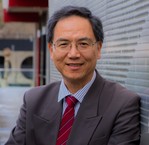Shanghai Institute for Advanced Study, Zhejiang University broadcast the presentation from Professor Wei Duan on 29th Jun 2023.

Presentation: Exosome Liquid Biopsy via Aptamer-guided Fluorescence Polarization
Presenter: Alfred Deakin Professor Wei Duan, School of Medicine, Deakin University, Australia
Time: 29th Jun 2023, 14.00 p.m. (Beijing Time)
Venue: College of Life Sciences, Zhejiang University
Aptamers, also known as chemical antibodies, are short single-stranded DNA or RNA that fold into complex three-dimensional structures and bind to target molecules with high affinity and specificity. Being 20 to 20 times smaller than monoclonal antibodies, aptamers have several advantages that offer the possibility of overcoming limitations of antibodies, such as low immunogenicity and toxicity; and smaller size enabling rapid diffusion, tunable binding parameters (kD, K-on and K-off rates), easy of synthesis with minimal batch-to-batch variations, as well as efficient tissue penetration and reduced steric hindrance.
In this lecture, Professor Duan introduced his work on developing aptamer-based EV technology. The goal of aptamer-EV research and development is to generate EV liquid biopsy platforms that can be directly applied to the biochemical analysers or immunological analysers in the pathology labs without the involvement of any additional specialised equipment or procedure (e.g. ultracentrifugation, microfluidics, size exclusion, precipitation, tangential flow filtration and/or asymmetric-flow field-flow fractionation). Professor Duan illustrated how aptamers could be applied to EV liquid biopsy using some of his latest results in aptamer-based fluorescence polarization. Compared to the widely used fluorescence intensity-based methods, the fluorescence polarization has the advantages of being a homogenous assay, no need for a washing step to separate bound and unbound affinity ligand and thus less susceptible to theinterference from quenching, photo-bleaching, pH or polarity of the assay environment. Professor Duan found that the concentration of aptamer required in fluorescence polarization-based EV detection was much lower than that required for antibodies, affording a superior signal-to-noise ratio. Furthermore, he pointed out that the aptamer-based fluorescence polarization assay enabled the detection of EVs from different sources based on the level of surface cancer biomarkers of these EVs.
About the Speaker:
Professor Duan graduated with a MBBS from Shanghai University of Chinese Medicine and obtained his Ph.D. in Biochemistry and Molecular Biology at University of Melbourne in 1991. Following his postdoctoral fellowship at University of Melbourne, he took a faculty position at the Medical School of National University of Singapore. He jointed Deakin University in 2006, where he is currently an Alfred Deakin Professor at Deakin School of Medicine.
Professor Duan has published more than 260 original research papers and review articles in peer-reviewed journals with an h-index of 55. His main research interest is the application of aptamer technology in targeted cancer drug delivery and EV liquid biopsy.
Professor Duan was the 2017 Clarivate Analytics Highly Cited Researcher in Pharmacology/toxicology. He serves on the editorial boards of several scientific journals, including being the Editor-in-Chief of Drug Design, Development and Therapy between 2015-2016.

